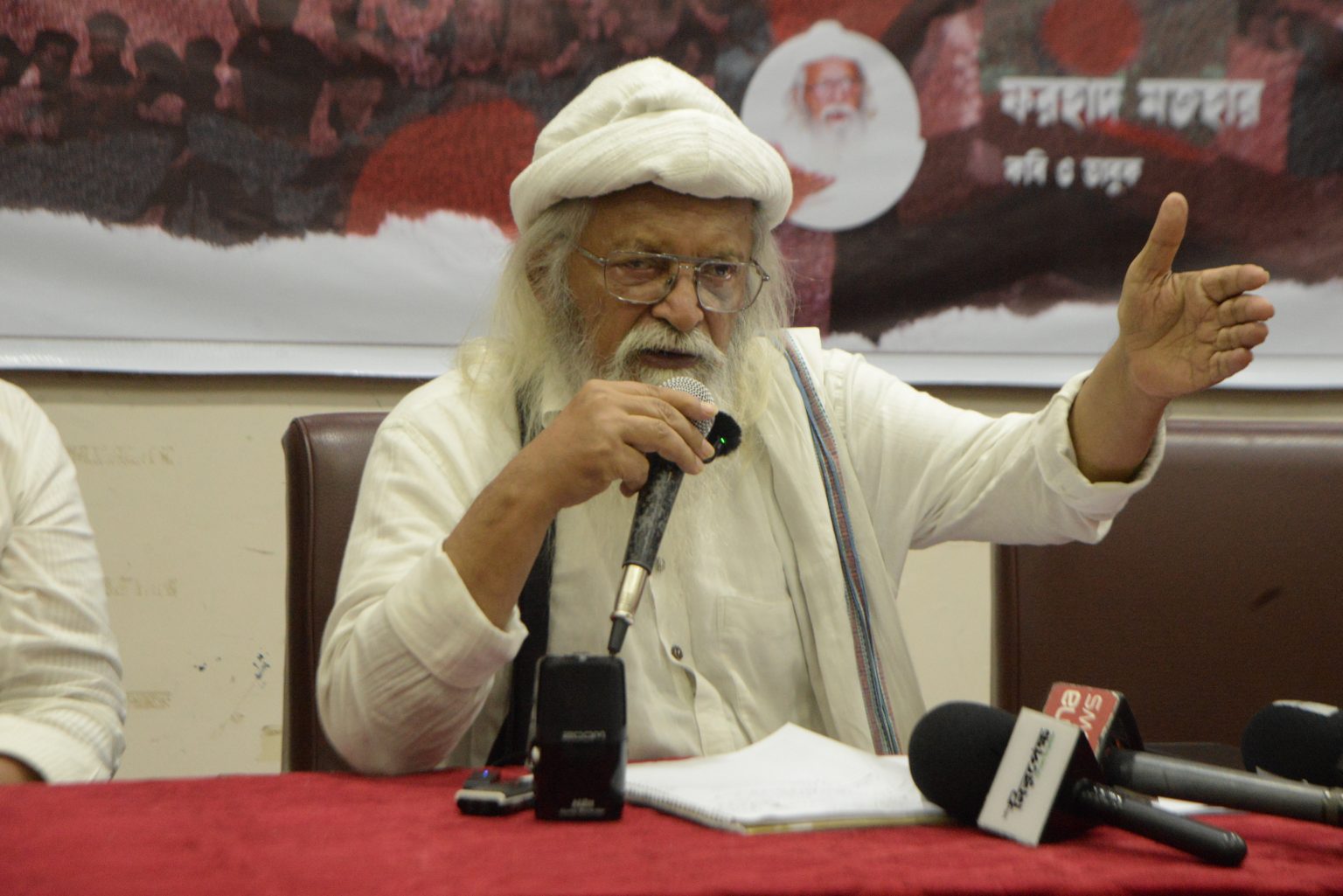At a discussion held at Dhaka University on Friday, poet and human rights activist Farhad Mazhar said that our collective struggle is against all versions of fascist state structures.
Farhad Mazhar made these remarks during a discussion titled “Mass Uprising and Popular Sovereignty” held at the RC Majumdar Auditorium of Dhaka University on Friday.
Mazhar stated, “Our fight is not against Sheikh Hasina. The struggle is against all forms of fascist state structures.” He explained that two types of fascism are currently at work in the country: one secular and the other religious.
On the question of constitutional reform, Mazhar said, “If the constitution is used to suppress the will of the people, it becomes dangerous.” He further noted, “Many countries, like England or Israel, do not have written constitutions, yet they function based on the will of the people.”
Expressing concern over Bangladesh’s current political and education systems, Mazhar observed, “There is minimal understanding of the state among the country’s society, universities, and youth – and this is one of the biggest crises facing the nation.”
He elaborated, “We live in a society where even teachers and students do not know what sovereignty means, what the difference is between the state and the government, or how modern states are formed.”
According to Mazhar, genuine political science or political thinking is not truly taught in Bangladeshi universities. “Young people have no concept of state-building, future planning, technology, or strategic thinking because these are absent from our education system,” he added.
Regarding the current political situation, Mazhar argued, “The recent government overthrow was not a revolution – it was a mass uprising.” He maintained that the process of toppling a government through collective public will and drafting a new constitution does not constitute a revolution but rather a popular uprising.
Responding to journalists, Mazhar clarified, “I do not use the term ‘revolution’ because its political meaning is specific and grave.”


